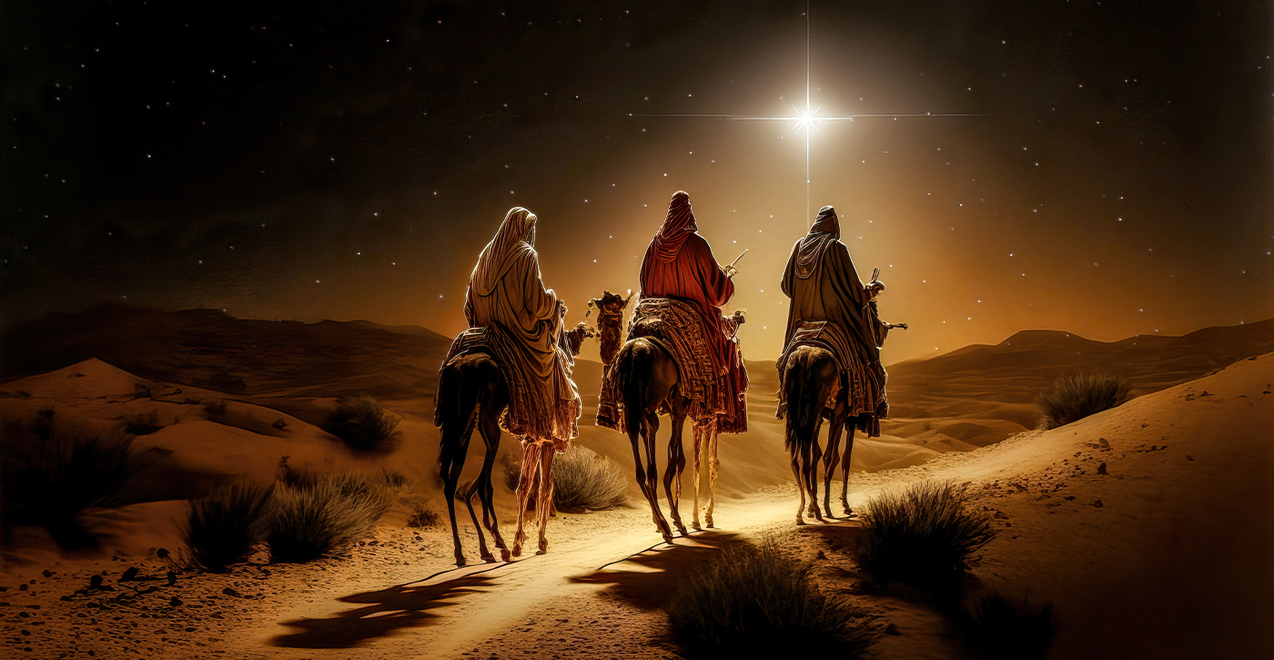Trap of the human heart
Reflecting on our Sunday Readings with Fr Dr Lawrence Ng Yew Kim
Jan 03, 2025

Epiphany of the Lord (C)
Readings: Isaiah 60:1-6;
Ephesians 3:2-3, 5-6;
Gospel: Matthew 2:1-12
Self-involvement is one of the great traps of the human heart. What do I mean by that? A self-involved person interprets everything, such as how every person and every event is filtered through the lens of “How does this affect me?” No matter what happens, they make it about themselves. Self-involvement isn’t just about taking care of oneself or having healthy self-awareness, as those are good and necessary. Instead, it’s about being overly absorbed in oneself to the exclusion of others and God.
The feast of Epiphany celebrates the “manifestation” of God in the person of Jesus. Manifestation happens outside us. In this homily, I want to propose, or argue, that we cannot experience the manifestations of grace when we are so self-involved to the point that we cannot look past ourselves. In this sense, even moments of beauty or grace become mere tools, seen only in terms of how they serve, challenge, or threaten our interests.
Herod is an example of this. When the Magi arrived with news of the newborn King of the Jews, Herod’s reaction wasn’t one of awe or joy. It was fear. Why? Because for Herod, everything was about him. His power, his throne, his kingdom. Even the long-awaited Messiah was seen not as a Saviour but as a threat to his control. His self-involvement was so complete that he couldn’t rejoice in the incredible work of God happening right in his midst.
Therefore, Herod was “greatly troubled, and all Jerusalem with him.” Instead of seeking Christ with humility, Herod manipulated the Magi, schemed with his advisors, and ultimately ordered the massacre of innocent children. .
The Magi and the Journey to Christ
The Magi showed us another way, one that is the opposite of self-involvement. These wise travellers had every reason to stay in their comfort zones. They were far from home, relying only on the light of a star. Yet they were willing to step into the unknown, not for personal gain, but to seek and honour Christ.
Unlike Herod, the Magi didn’t make the journey about themselves. They didn’t ask, “What’s in it for me?” They came to give, offering gifts of gold, frankincense, and myrrh. Their hearts were open to God’s revelation, and because of this, they found the Saviour.
The Gospel tells us that the Magi returned home by another route after being warned in a dream to avoid Herod. On a practical level, their change of direction was to ensure their safety and protect the child Jesus from Herod’s schemes. But there’s also a deeper spiritual insight here: encountering Christ often changes the course of our lives. While their new route was a physical one, it reflects a longstanding truth in the Christian tradition — that a genuine encounter with God transforms us. It may not be dramatic or immediate, but it invites us to walk a different path, one shaped by faith, humility, and openness to God’s will.
An Invitation to See
Herod’s story is a warning for all of us. Selfinvolvement narrows our vision, making it difficult to see the wonder of God’s work. Worse, it can lead us to resist or even destroy what challenges our comfort or control. Herod’s fixation on himself blinded him to the light of Christ. Pope Benedict XVI once said, “The world offers you comfort, but you were not made for comfort. You were made for greatness.” Herod clung to his own small kingdom, but it cost him the greatness of encountering Christ.
The Magi, on the other hand, offer us an invitation. Their journey reminds us that faith isn’t about being in control, but about being open. It’s about stepping out of our comfort zones and following the light manifested to us.
The Magi offered gifts of gold, frankincense, and myrrh, symbolising Christ’s kingship, divinity, and sacrifice. What can we offer? Perhaps it’s the gift of our time, our talents, our service or a renewed commitment to seek Christ in prayer, service, and love.
A Decisive Moment
Epiphany celebrates the moment when Christ is revealed to the nations, represented by the Magi. But it’s also a moment of decision. Herod and the Magi both encountered the revelation of Christ, yet their responses differed. Herod clung to his self-interest and missed the Saviour. The Magi opened their hearts and found Him.
This Epiphany, we’re invited to reflect on our response to Christ’s revelation. Are we self-involved like Herod, interpreting everything through the lens of how it affects us? Or are we open like the Magi, willing to follow God’s light wherever it leads?
Herod’s tragedy wasn’t his lack of resources or knowledge but his inability to see beyond himself. The Magi remind us that God’s revelation requires openness, humility, and a willingness to change.
Epiphany celebrates a profound truth: God’s light is for all people, regardless of background or journey. Like the Magi, we are invited to follow that light with joy and trust. May we do exactly that, which is being able to set aside our self-involvement and always ready to respond to God’s invitation.







Total Comments:0